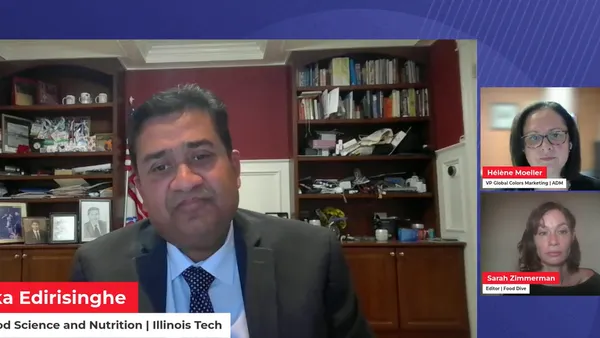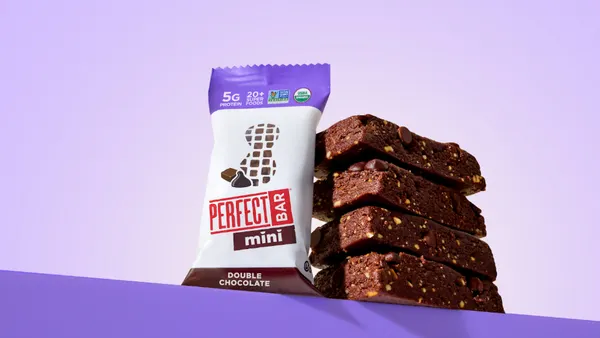Dive Brief:
-
Olam International will provide food and drink makers with comprehensive data on how ingredients are sourced from its 4.7 million farmers in an effort to take sustainability mainstream, according to a company release.
-
The new tool is called AtSource, and will begin by capturing data on the social and environmental impacts of Olam’s cocoa and cashew from Ivory Coast, coffee from Brazil and Vietnam and onions and garlic from the USA, to be extended to all other product supply chains by 2025. It will track 80 indicators, such as farmer yields, deforestation and water scarcity.
-
Manufacturers looking to ensure their ingredients are sustainably sourced can choose from three levels of data accessed via digital dashboards. The first provides basic reassurance that suppliers are engaged in responsible sourcing principles, the second allows companies to tailor interventions based on their own sustainability priorities and a third, more advanced level ensures more resources are being put back into the farming system and environment than taken out.
Dive Insight:
Consumers increasingly demand transparency about their foods — and not just about which ingredients they contain, but also about how they are made and whether they are sustainably sourced. A recent study from Response Media found that nine ot of ten consumers want to see transparency about ingredients and their sources.
Olam acknowledges the complexity of tracing ingredients from millions of farmers worldwide, but says it is crucial to the company and its customers to ensure the sustainability of its supply chains. This is a realization that has already pushed sustainability into the heart of corporate strategy, as firms increasingly understand that the long-term viability of their business depends on sustainable supply.
In the cocoa sector, for example, Nestlé, Lindt, Mars, Mondelez and Barry Callebaut have all made investments and pledges to improve sustainability in the industry, though the extent of their commitments varies. Most recently, Hershey announced $500 million of investment in West African cocoa sustainability strategies to 2030, adding to a raft of previous initiatives from the company.
Sustainable practices are attractive to consumers, too. According to a report from The Hartman Group, nearly 70% of consumers would prefer companies to be more transparent about their sustainability efforts. And Response Media found 98% of respondents would be willing to pay more for transparent packaged foods — providing retailers with a financial incentive to ensure their products stand up to scrutiny.
Olam International’s initiative is likely to come up against significant challenges. Even widespread efforts to improve the sustainability of single ingredients, such as palm oil or soy, have failed to eliminate deforestation from their supply chains. However, transparency and traceability are essential first steps toward transforming how ingredients are sourced.
If Olam's database succeeds in providing truly granular data, it is likely to shine a bright light on manufacturers’ supply chains — a potentially powerful tool for spurring change.













